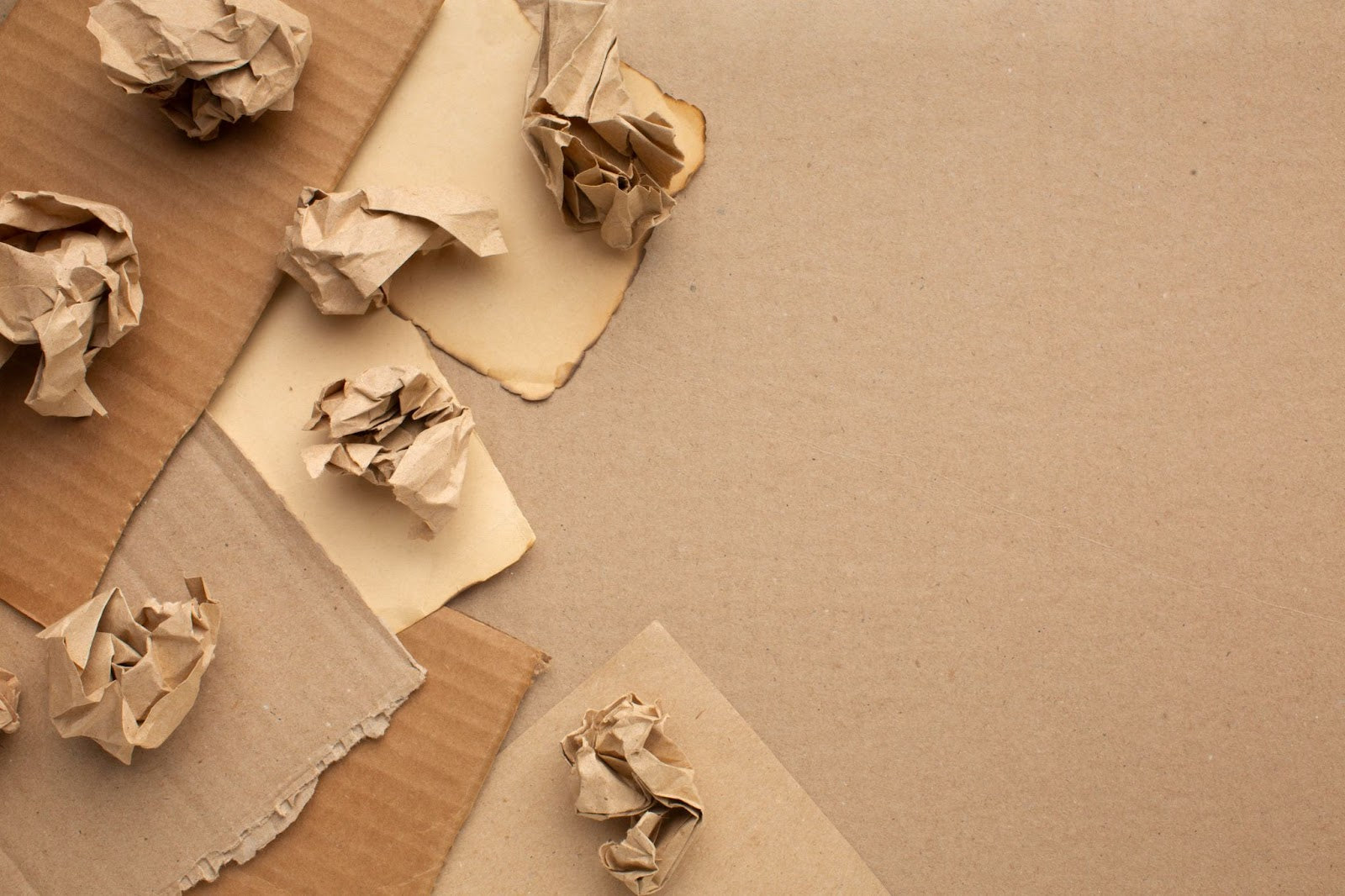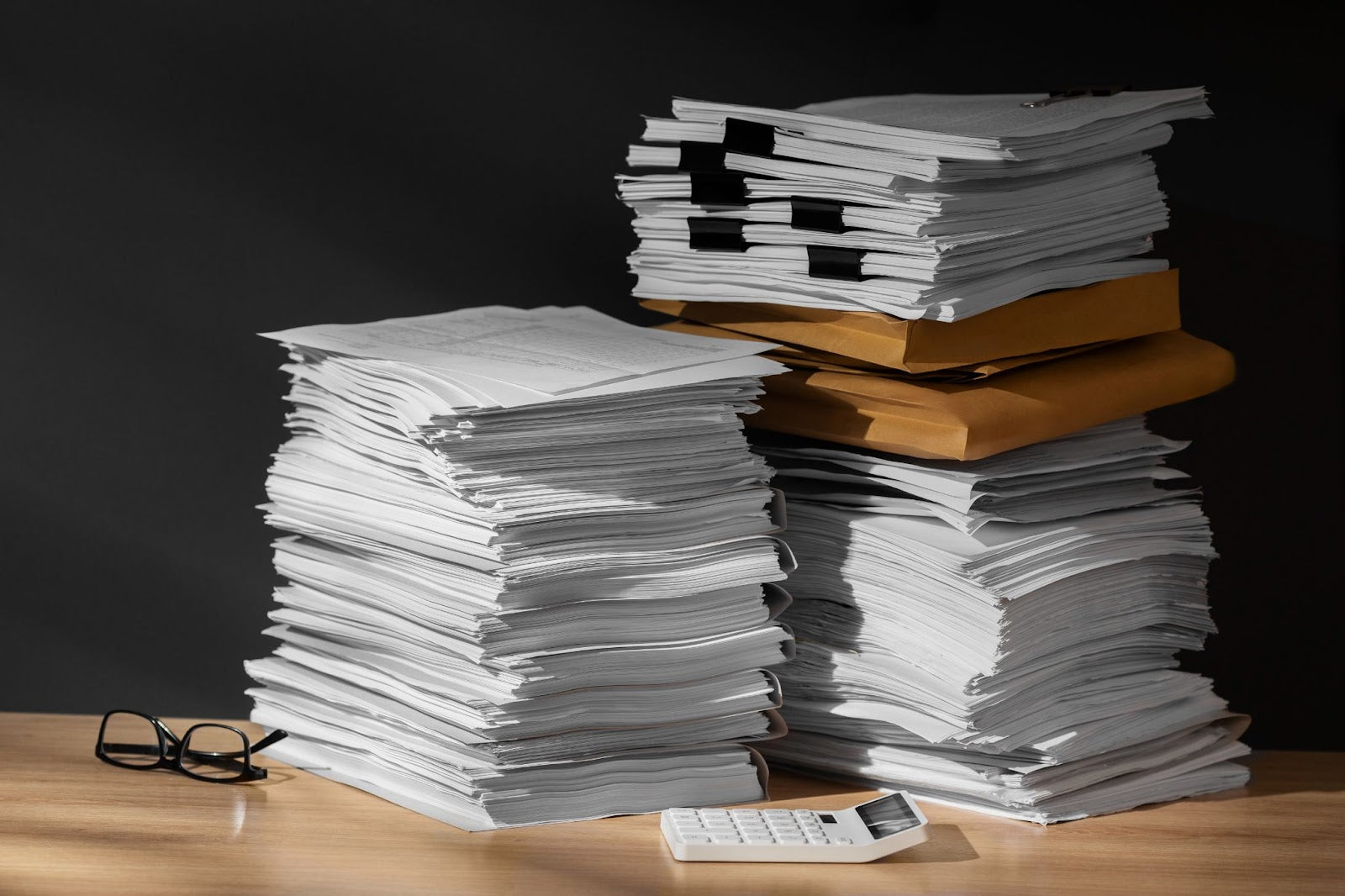In the age of environmental consciousness, the choice between recycled paper and virgin paper is more relevant than ever. Both have merits, but understanding the differences can help consumers and businesses make more eco-friendly decisions.
This blog explores the key distinctions, benefits, and considerations of recycled paper versus virgin paper.
What is Recycled Paper?
Recycled paper is produced from paper products that have been previously used and then reprocessed. This includes office paper, newspapers, magazines, and cardboard. This process helps to reduce the amount of waste going into landfills and saves trees from being cut down for paper production.
Benefits of Recycled Paper
Environmental Impact
Recycled paper significantly reduces the need for raw materials. Recycled paper helps to reduce the strain on natural resources and decreases the amount of energy and water needed for production.
Energy Efficiency
Producing recycled paper uses less energy than manufacturing virgin paper. This reduction in energy usage translates to lower greenhouse gas emissions.
Waste Reduction
Utilising recycled paper helps divert waste from landfills, reducing overall waste and promoting a circular economy.
Water Conservation
The production of recycled paper consumes less water than virgin paper, which is crucial in a world facing increasing water scarcity.
Conservation of Natural Resources
Using recycled paper helps to preserve forests and wildlife habitats by reducing the demand for virgin paper.
In the past, one of the primary concerns regarding recycled paper was its perceived inferior quality. However, technological advancements have improved the quality and performance of recycled paper.
Today, high-quality recycled paper is readily available and offers the same level of performance as virgin paper, making it a compelling choice for businesses and individuals.
How to Identify Recycled Paper
Recycled paper products are usually labelled with a percentage of post-consumer recycled content, indicating how much of the paper was made from old products. Look for labels such as "FSC Certified" or "100% Recycled" to ensure you purchase environmentally friendly paper.
In a post written by GreenMatters, they explain that The Forest Stewardship Council (FSC), which describes itself as a "group of businesses, environmentalists and community leaders," is a well-respected not-for-profit that aims to protect the world's forests by overseeing and improving timber production.
What is Virgin Paper?
Virgin paper is made directly from pulp derived from trees and other plants. This process involves logging, pulping, and bleaching to produce the final paper product. While virgin paper often boasts higher quality and durability, it comes at a significant environmental cost.
Advantages of Virgin Paper
Quality and Strength
Virgin paper is typically stronger and more durable than recycled paper, making it preferable for high-quality print jobs and essential documents.
Aesthetic Appeal
Virgin paper often has a cleaner, brighter appearance, which can be important for certain professional and artistic purposes.
Environmental Concerns of Virgin Paper
Deforestation
The production of virgin paper contributes to deforestation, leading to habitat destruction, loss of biodiversity, and increased carbon emissions.
Energy and Water Use
Manufacturing virgin paper is energy-intensive and requires large amounts of water, contributing to higher environmental footprints.
WWF states that making pulp and paper requires vast amounts of water. Paper mills may also discharge many pollutants into surrounding water bodies, which causes damage to aquatic ecosystems and threatens the health of people who live near the mill.
Chemical Pollution
Bleaching virgin paper involves chemicals that can lead to water and soil pollution.
Recycled Paper vs. Virgin Paper: A Comparative Analysis
Sustainability
Recycled Paper: Supports sustainability by reusing existing materials and reducing the need for new resources.
Virgin Paper: Requires fresh resources, leading to greater environmental degradation.
Quality
Recycled Paper: While slightly lower in quality, advancements in recycling technology have significantly improved the performance and appearance of recycled paper.
Virgin Paper: Offers superior quality and consistency, making it ideal for high-stakes printing needs.
Cost
Recycled Paper: Often slightly more expensive due to the complex recycling process, but prices are becoming more competitive as demand grows.
Virgin Paper: Generally less expensive due to established production methods and economies of scale, though this does not account for environmental costs.
Making the Eco-Friendly Choice
Choosing recycled paper over virgin paper is a simple yet impactful way to support environmental sustainability. By opting for recycled paper, consumers and businesses can help reduce deforestation, conserve energy and water, and promote a more sustainable paper industry.
Conclusion
The debate between recycled and virgin paper ultimately hinges on balancing quality needs with environmental responsibility. While virgin paper may offer superior quality, recycled paper provides significant natural benefits for a sustainable future. By making informed choices and prioritising recycled paper, we can collectively reduce our ecological footprint and contribute to a healthier planet.
The recycled paper represents a step towards a more sustainable world, where waste is minimised, and natural resources are conserved.
As technology advances and awareness grows, the gap in quality between recycled paper and virgin paper continues to narrow, making the eco-friendly choice easier and more practical than ever.
Looking for sustainable Stationary options? Check out Rescript today


